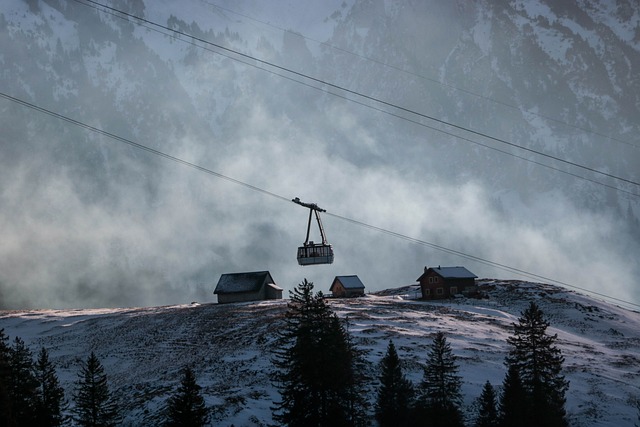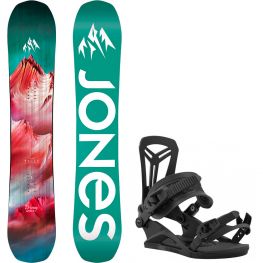
A ski lesson is an excellent way to get started in skiing. You can sign up for one session or a week. It can be an enjoyable experience for your child and they will love spending quality time with their peers.
There are many benefits to taking a ski lesson, including:
It will teach your child to be safe on the slopes. Instructors will be able to guide them and make sure they are aware of safety rules, such as who has the right of way. They will also be able to show them how to merge safely on to trails and avoid putting themselves in a dangerous situation.

They will also be able to help your child learn the fundamentals of snowplough turns and how to control their speed. These skills will help them progress from the beginner zone to more advanced runs on the mountain.
This will help your child ski down the hill safe and confidently. You can take your lessons with them on your own or with friends, which is a great way for them to get used to the sport.
A ski lesson gives you the opportunity to learn new techniques and discover what works for your needs. You will be able to practice your technique with your instructor at every session.
A ski lesson will also help to prevent injuries, especially for your knees. This is due to the fact that instructors will have a lot knowledge on how to properly set your equipment to match your skier's ability.

A ski lesson gives you the opportunity to explore different terrains on the hill. This will enable you to feel confident on a variety slopes.
Although a ski lesson is a significant investment, it will pay off over the long-term. Not only will it be more enjoyable, but you'll also have more time on your skis and less sitting in a seat.
A ski lesson should be taken no less than once a winter. However, it is also a good idea to take lessons throughout the year if you can. If you are new to the sport, it will be better for you to start with a couple of sessions and then move on to more lessons as you gain more confidence.
FAQ
What amount of luggage should I bring?
The length and type of trip will dictate how much luggage to take. For a flight, hand baggage is not necessary, typically less than 20 kg. You will need more space if you travel by train or bus.
An airport form with information regarding your flight will be handed to you upon arrival. This form will ask for information such as your baggage weight and if you require assistance to check them in.
Before you leave for work, make sure to check it. You might find yourself stuck waiting in line for hours as everyone else inspects their luggage.
It's best to travel light, as you never know when something might happen. It is possible to lose your bag and not have something to wear.
What should you do the first time you arrive at your travel destination after you have arrived?
You should always have an itinerary for when you arrive at a place. It will let you know what to expect, and where to go next.
To avoid missing anything, you need to plan ahead.
You should also research what museums, parks, or landmarks you want to visit if you are planning to visit a city more than once.
It might be worth looking into getting a map for the area or reading about the history of this region.
Where should I store my luggage
There are several different options available. The most common one is to use lockers at airports. These lockers are located in the vicinity of the security area. You can get one for $5-10 per Day, depending on how big the locker is.
A storage unit can be rented. These units can be found in shopping centers and hotels. While prices can vary, there are some places that offer discounts for multiple units being rented together.
The third option is to rent a porter. A porter will take your luggage from the carousel and bring it to your room. For each porter you hire, you pay a small amount.
Do you ever worry that you might forget something when you travel?
Yes, I often forget stuff. This is more common when I go on a short trip. Luckily, I always have everything I need with me so I never run out.
For example, I always have my passport with me. And I always check whether I have enough money when I buy tickets.
Also, I always take my phone charger. For other items, I carry a small bag.
What should you never forget when traveling?
Traveling can be stressful. You'll often find yourself in situations where you have little time to make decisions. You should be ready to improvise.
You could be stuck there for hours, days and even weeks. If you plan ahead, you will have food, water and shelter. But, if not, you might have the need to improvise.
In these instances, you may need to rely only on what you are good at. This means that you will need to make quick decisions based on your intuition and experience.
But there are times when you can't choose. Sometimes, however, you will have to make do with what you have. You will need to be flexible to any situation that presents itself.
It is important to remain calm, keep your eyes on the prize and be decisive. Don't panic. Instead, try to focus on the things that you can control.
If you are lost in the woods, it is possible to choose which direction you should go. For those who are hungry, berries and mushrooms can be eaten. You can also drink rainwater and melt snow if you feel thirsty.
Or if you're tired, you can rest. You can layer up if you are cold. If you're wet, you can change clothes. Whatever you decide, you'll feel better if you stay positive.
How do you prepare your body for vacation?
It is essential to exercise and eat healthy while on vacation.
Also, make sure you get plenty of sleep before you go.
You should ensure you have all necessary travel documents and medication ready for when you go.
Also, be sure to bring enough medication for your trip in case you need it.
Last but not least, make sure you have a spare set of clothes in case something happens.
Do I need travel insurance?
Travel insurance is essential for anyone who plans to go on an adventure. You should ensure that you have coverage for all types and forms of adventure sports.
You should make sure you have insurance if you ski. It is also worth looking into coverage for theft, loss and damage.
Cover for cancellation should be considered. This means that you can cancel your holiday without paying any penalties.
It is also a good idea if you are able to get emergency evacuation cover. This includes being taken off the mountain in case of an avalanche or other natural disaster.
Statistics
- Between the ages of 11 and 13, kids, or tweens, will likely want some autonomy but also need boundaries. (travelandleisure.com)
- Pack sweaters, jackets, and underwear in reusable compression bags creating up to 75% more space in your luggage. (wikihow.com)
- They're also likely to offer babysitting services, in case you'd like to have dinner one night after 7 p.m. (travelandleisure.com)
- Alcoholic beverages with more than 24% but not more than 70% alcohol are limited in checked bags to 5 liters (1.3 gallons) per passenger and must be in unopened retail packaging. (tsa.gov)
- Case in point: the private island of Ilha Caldeira, less than seven miles off the coast as part of the Primeiras and Segundas Archipelago, is located within the marine-protected area with 20 percent of the country's intact living coral. (travelandleisure.com)
External Links
How To
What are the best travel tips for beginners?
Traveling is an exciting experience, but there are many pitfalls you need to avoid if you want to have a safe and enjoyable trip.
Here are some basic tips to help you plan your next vacation.
-
Book early. The price of a booking is lower if it's made in advance. You'll also save money by avoiding last-minute deals offered by hotels and airlines.
-
Stay-at-budget accommodations. Cheap hotels offer better value for money. They're usually located near public transportation and shopping centers.
-
Don't overpack. Pack light. Leave room for souvenirs and gifts. Take clothes that fit well.
-
Use common sense. Be careful if you're on your own. Avoid areas with high crime and insecure neighborhoods.
-
You can take precautions to prevent theft. Keep valuables locked away from sight. You should never leave anything valuable at home when you go swimming.
-
Cash is a dangerous thing. Tourists living in foreign cities are often the target of thieves. Keep your money away from prying eyes and only use ATMs at banks or protected facilities.
-
You should know where you are. Before booking a hotel, ensure you know how to get around using public transport. Find out about tourist attractions, restaurants, and other sights.
-
Make sure you are safe. Before you go, find out about the local laws, customs and culture.
-
Have fun. Have fun, regardless of what happens. It's worth it.